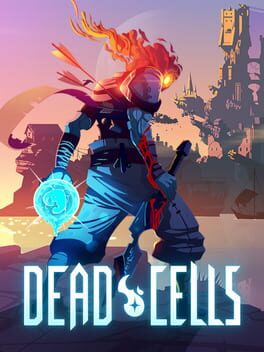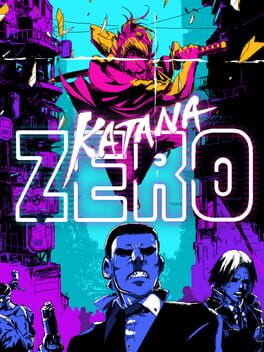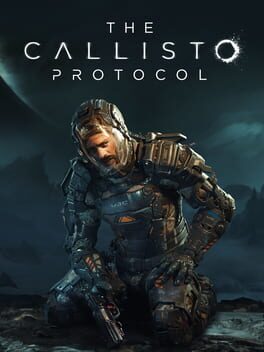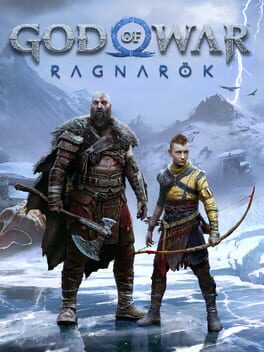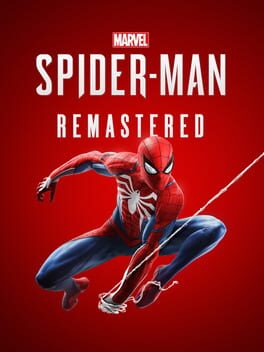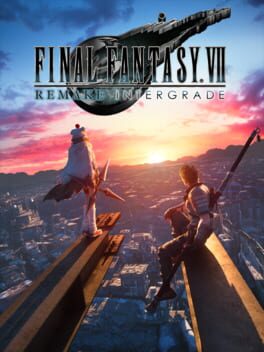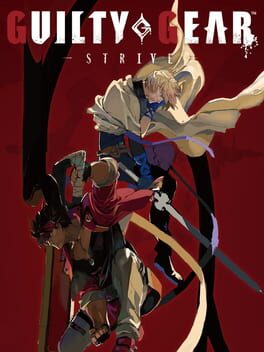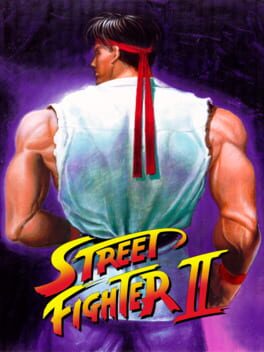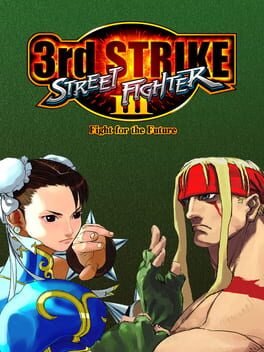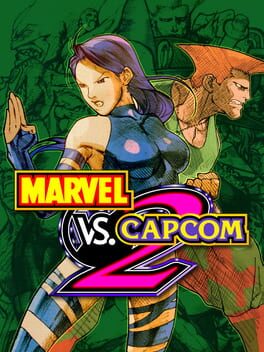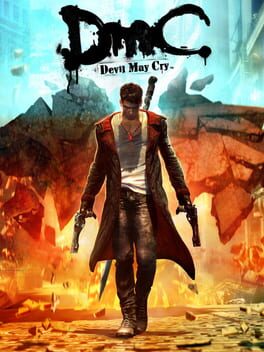KendoZSX
2017
2019
2023
A limit that is pushed, but not broken.
There's no doubt that the game is visually breathtaking. Each ember that radiates from Phoenix's wings or Ifrit's hands are as palpable as the real deal. Particle effects through intimate clashes of steel and magic fill up the screen in dramatic and stimulating flare. Each unique environment within Valisthea gets pretty close to reality breaking, if not for the giant spiders and occasional Chocobo. Even in 2023, there aren't many games that I personally believe look so graphically intense on the PS5, but this game genuinely seems like it utilizes almost all the capabilities of the upgraded hardware. But that's pretty much it's only unique identity.
In fact, I'd say most of the game is devoid of one. That isn't ENTIRELY a bad thing; it wears its influences and ideas on its sleeve with pride. The issue is that rather than being a proper amalgamation of those influences, it comes off more like a Frankenstein of those ideas that seems a bit too excited to display those influences instead of presenting a completely exclusive and engaging experience. A key example here is the combat.
It's not without merit, the combat. Clive has the ability to do some interesting things with a meager standard combo that is only built upon as time goes on and you unlock more Eikon abilities, but the ceiling is still incredibly low. Initially I thought that the combat was bare-bones without the execution or player incentive to explore more, and while that notion wasn't entirely unproven by the end of the game, I still found myself trying to take all of the abilities to their brink, with some success. You'd be hard-pressed to discuss this game without discussing Devil May Cry; both share the same battle designer (Ryota Suzuki), after all. Elements both in practicality and style are all over the place (Helm Splitter, Enemy Step, Judgement Cut End), but it leans more towards that style and less towards that practicality.
That being said, it isn't trying to be DMC. The comparisons aren't unfounded, but it's an RPG and not an action adventure game with the purpose of being extensible in battle. When the situation arises for it, you can respec and adjust your abilities for the occasion. In that sense, it does well.
I think my biggest problem is enemy engagement. The standard grunt enemy feels to be placed as to activate a neuron and a mini-boss only to activate two. The bosses lack positional awareness and spam the limited pool of moves they have with abandon, ever so slightly increasing the frequency and potency as death draws near. I had only died twice during my entire playthrough and in both instances I wasn't engaged in combat at all because there is no proper threat of death in this game, even with the final boss. Nothing here is challenging, nothing here is rewarding. It does not help that gearing is practically useless, as crafting weapons and defenses come only with positives and no negatives, making every conflict a bore at the most. Not even the S-rank hunts could satiate this; an increased health pool and more damage is not enough variation to satisfy what I am looking for. But the same cannot be said for the Eikon fights, which are easily the best aspect about this game. Grandiose spectacle that is usually coupled with a phenomenal composition and direction which hasn't been matched in any recent JRPG release, withstanding FF7R. I don't have much to say because they are experiences to behold, and make up for any lack of enjoyment that takes place during the mostly mundane standard combat.
The cast is at best extraordinary and at worst indigent. Characters like Joshua, Dion, Gav, Cid, and Byron showcase the best of Kazutoyo Maehiro's work as we get to see not only how nuanced each of these characters are, but how formative they are to the total experience of this adventure. Each of these characters bounce of Clive extremely well while going through their own personal dilemmas and struggle or refine their ideology within their world. Characters like Hugo, Barnabus, and Ultima fall completely short for me in terms of resonance and cohesiveness, which I feel is the result of a lack of proper engagement with their perspectives and dogma.
The gameplay loop is also something that is excruciatingly boring. Glorious crusades are undercut by fetch quests, mob waves, mini-boss, which leads to the actual boss, then the Eikon fight, and then repeat. The first half of this loop is only exasperated by the extreme amounts of dialogue. In the beginning, I found all of it extremely impressive, as the voice work is done well and fits within the landscape of the game. But it is too extensive, and toward the final 5 hours of the game I found it imperative to skip over dialogue that did little to add anything to the story.
I mentioned the identity aspect at the beginning because it's a big talking point about this game. Other people seem to think it's a stark detraction and while I don't entirely disagree I think it's a bit more nuanced than people would like to admit. Re-imagined fanfares sound like crutches that hold Soken's production back but the insistence of seriousness makes it feel alien as there isn't ever a time to kick back and relax with your party. This is just an example, but the point I'm trying to make is that instead of being something that defines itself as a Final Fantasy game, it takes the philosophy of other works and attempts a fusion that isn't without hiccups. That in of itself can be discussed if that is what truly makes it a Final Fantasy game though.
I even consider the narrative to be half-baked; it presents so many interesting ideas with the hierarchical nature of its society and alludes to the parallels with our world with Dominants being weapons of mass destruction and the Mothercrystals/Blight being a look at our own society's uses of fossil fuels and the ensuing damage but doesn't take a proper stab at any of these things. All that being said... this game has some phenomenal moments that shine brighter than a lot of its flaws, and concludes with class.
It's so close to being amazing, but I can never say that I didn't enjoy myself.
3.5/5
There's no doubt that the game is visually breathtaking. Each ember that radiates from Phoenix's wings or Ifrit's hands are as palpable as the real deal. Particle effects through intimate clashes of steel and magic fill up the screen in dramatic and stimulating flare. Each unique environment within Valisthea gets pretty close to reality breaking, if not for the giant spiders and occasional Chocobo. Even in 2023, there aren't many games that I personally believe look so graphically intense on the PS5, but this game genuinely seems like it utilizes almost all the capabilities of the upgraded hardware. But that's pretty much it's only unique identity.
In fact, I'd say most of the game is devoid of one. That isn't ENTIRELY a bad thing; it wears its influences and ideas on its sleeve with pride. The issue is that rather than being a proper amalgamation of those influences, it comes off more like a Frankenstein of those ideas that seems a bit too excited to display those influences instead of presenting a completely exclusive and engaging experience. A key example here is the combat.
It's not without merit, the combat. Clive has the ability to do some interesting things with a meager standard combo that is only built upon as time goes on and you unlock more Eikon abilities, but the ceiling is still incredibly low. Initially I thought that the combat was bare-bones without the execution or player incentive to explore more, and while that notion wasn't entirely unproven by the end of the game, I still found myself trying to take all of the abilities to their brink, with some success. You'd be hard-pressed to discuss this game without discussing Devil May Cry; both share the same battle designer (Ryota Suzuki), after all. Elements both in practicality and style are all over the place (Helm Splitter, Enemy Step, Judgement Cut End), but it leans more towards that style and less towards that practicality.
That being said, it isn't trying to be DMC. The comparisons aren't unfounded, but it's an RPG and not an action adventure game with the purpose of being extensible in battle. When the situation arises for it, you can respec and adjust your abilities for the occasion. In that sense, it does well.
I think my biggest problem is enemy engagement. The standard grunt enemy feels to be placed as to activate a neuron and a mini-boss only to activate two. The bosses lack positional awareness and spam the limited pool of moves they have with abandon, ever so slightly increasing the frequency and potency as death draws near. I had only died twice during my entire playthrough and in both instances I wasn't engaged in combat at all because there is no proper threat of death in this game, even with the final boss. Nothing here is challenging, nothing here is rewarding. It does not help that gearing is practically useless, as crafting weapons and defenses come only with positives and no negatives, making every conflict a bore at the most. Not even the S-rank hunts could satiate this; an increased health pool and more damage is not enough variation to satisfy what I am looking for. But the same cannot be said for the Eikon fights, which are easily the best aspect about this game. Grandiose spectacle that is usually coupled with a phenomenal composition and direction which hasn't been matched in any recent JRPG release, withstanding FF7R. I don't have much to say because they are experiences to behold, and make up for any lack of enjoyment that takes place during the mostly mundane standard combat.
The cast is at best extraordinary and at worst indigent. Characters like Joshua, Dion, Gav, Cid, and Byron showcase the best of Kazutoyo Maehiro's work as we get to see not only how nuanced each of these characters are, but how formative they are to the total experience of this adventure. Each of these characters bounce of Clive extremely well while going through their own personal dilemmas and struggle or refine their ideology within their world. Characters like Hugo, Barnabus, and Ultima fall completely short for me in terms of resonance and cohesiveness, which I feel is the result of a lack of proper engagement with their perspectives and dogma.
The gameplay loop is also something that is excruciatingly boring. Glorious crusades are undercut by fetch quests, mob waves, mini-boss, which leads to the actual boss, then the Eikon fight, and then repeat. The first half of this loop is only exasperated by the extreme amounts of dialogue. In the beginning, I found all of it extremely impressive, as the voice work is done well and fits within the landscape of the game. But it is too extensive, and toward the final 5 hours of the game I found it imperative to skip over dialogue that did little to add anything to the story.
I mentioned the identity aspect at the beginning because it's a big talking point about this game. Other people seem to think it's a stark detraction and while I don't entirely disagree I think it's a bit more nuanced than people would like to admit. Re-imagined fanfares sound like crutches that hold Soken's production back but the insistence of seriousness makes it feel alien as there isn't ever a time to kick back and relax with your party. This is just an example, but the point I'm trying to make is that instead of being something that defines itself as a Final Fantasy game, it takes the philosophy of other works and attempts a fusion that isn't without hiccups. That in of itself can be discussed if that is what truly makes it a Final Fantasy game though.
I even consider the narrative to be half-baked; it presents so many interesting ideas with the hierarchical nature of its society and alludes to the parallels with our world with Dominants being weapons of mass destruction and the Mothercrystals/Blight being a look at our own society's uses of fossil fuels and the ensuing damage but doesn't take a proper stab at any of these things. All that being said... this game has some phenomenal moments that shine brighter than a lot of its flaws, and concludes with class.
It's so close to being amazing, but I can never say that I didn't enjoy myself.
3.5/5
Pros:
- Somewhat engaging narrative
- Serviceable cast
- Conceptually, the combat is interesting and the emphasis on melee separates it from others in the genre
Cons:
- Boring antagonist
- Mediocre level design
- The combat's execution is piss poor with a weak dodging mechanic that works only 60% of the time
- Script is very B-grade
I have mixed feelings about this game. Of course it would have some resonance with Dead Space, given the team behind it, but it feels like a mimic with little soul integrated into the game. I think this is less survival horror and more action horror, but it tries to emulate the best of both worlds while not really striking either. I did enjoy my time though, and I do hope Glen can do things better if a sequel ever does get greenlit. Will be waiting for the Dead Space Remake in the interim.
- Somewhat engaging narrative
- Serviceable cast
- Conceptually, the combat is interesting and the emphasis on melee separates it from others in the genre
Cons:
- Boring antagonist
- Mediocre level design
- The combat's execution is piss poor with a weak dodging mechanic that works only 60% of the time
- Script is very B-grade
I have mixed feelings about this game. Of course it would have some resonance with Dead Space, given the team behind it, but it feels like a mimic with little soul integrated into the game. I think this is less survival horror and more action horror, but it tries to emulate the best of both worlds while not really striking either. I did enjoy my time though, and I do hope Glen can do things better if a sequel ever does get greenlit. Will be waiting for the Dead Space Remake in the interim.
2022
Such an engaging time with some pacing issues and a conclusion I am quite unsure about. Combat that is engrossing but puzzles and environmental design that treats you like a child. I feel so conflicted with this game. But I love God of War. I love the amazing moments this game, this franchise has given me. With all the doubts and criticisms I hold, this is still a game that lives up to the legacy it has created for itself.
2022
Elden Ring is just short of perfection but nothing short of a masterpiece. Visually striking, mechanically competent, and full of life (or rather, the lack thereof). Unlike its predecessors, this story is not just about conquering struggle, but overcoming death itself to relinquish despair to the ether and defeat gods themselves. The world is expansive, ranging from the lush plains of Limgrave to the hell that is the Lake of Rot. The overworld never felt drab, teeming with enemies to slay and collectibles to earn, although the dungeons of the game (more similar to the linear Dark Souls levels) left a bit to be desired. There are a plethora of reused bosses in the game, which are probably annoying to encounter if one was to be a completionist, but a myriad of them vary just enough to not be stale by the time the game ends. The main bosses are demigods not only in description but in power, all of them bringing enough spectacle and dominance to battle that supersedes their reputations in-game. To fight them, you have an arsenal of weapons at your disposal. The game is not monotonous in terms of your approach; you can use a plethora of different weapons ranging from wands for magic to blades that cause tremendous amounts of blood loss. I mainly stuck with a bleed build, as it was very damaging to a great amount of the enemies in the game.
This is the first time I caught the wind of the zeitgeist that are Soulsborne games. Elden Ring delivered on all the aspects that I had expectations for, and then some. Spent so much time exploring, farming, trying to overcome everything thrown my way just so I could dethrone God themself. Some of my favorite boss fights in gaming history are contained here, and even had a fun multiplayer experience at one point in the late game. The game would've been perfect, but there are some bosses in the game that subject you to mental torture (due to their mechanical idiocy) unlike the world has ever seen, so I can't give it a perfect. But I love this game, I'll be playing it for NG+ soon, and I highly recommend it to anyone else who wants to give it a shot.
This is the first time I caught the wind of the zeitgeist that are Soulsborne games. Elden Ring delivered on all the aspects that I had expectations for, and then some. Spent so much time exploring, farming, trying to overcome everything thrown my way just so I could dethrone God themself. Some of my favorite boss fights in gaming history are contained here, and even had a fun multiplayer experience at one point in the late game. The game would've been perfect, but there are some bosses in the game that subject you to mental torture (due to their mechanical idiocy) unlike the world has ever seen, so I can't give it a perfect. But I love this game, I'll be playing it for NG+ soon, and I highly recommend it to anyone else who wants to give it a shot.
2021
1997
1991
2013

